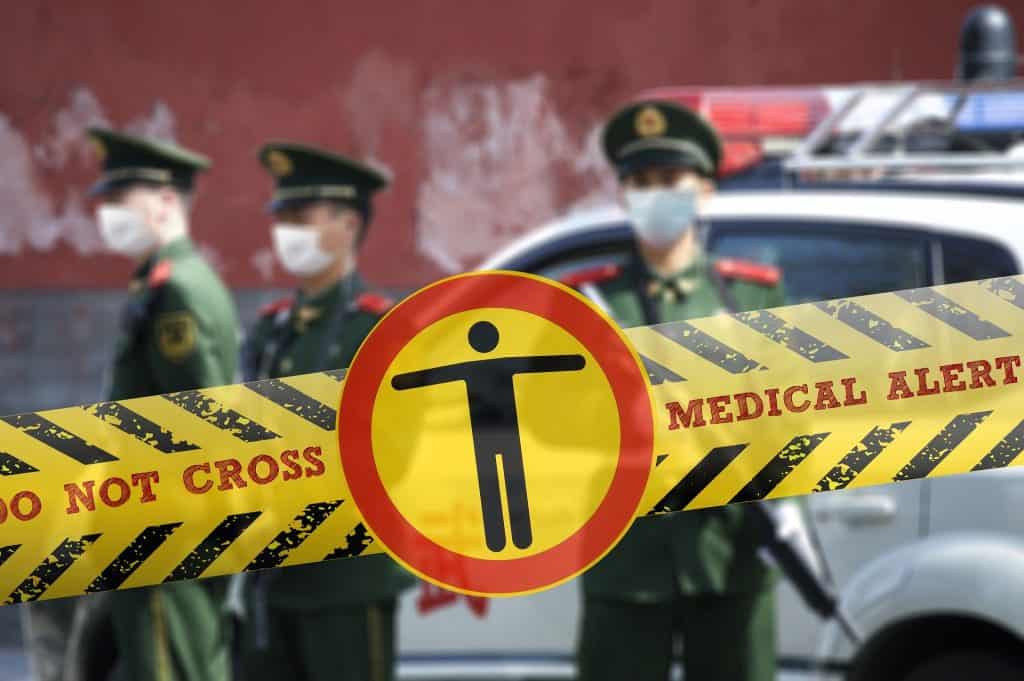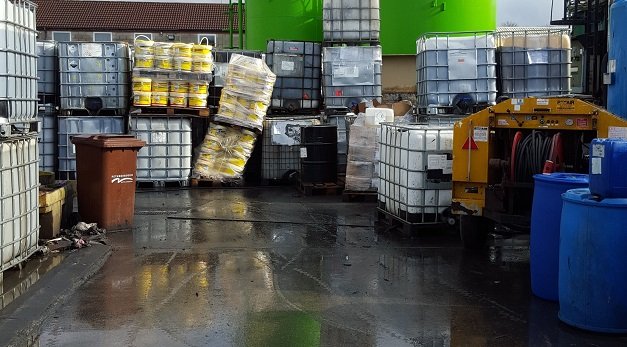
Amazon is catching the coronavirus, also known as COVID-19, or coronavirus disease 2019. The retail giant doesn’t get a runny nose or cough, but the effects on the company’s health are real. Amazon, along with other top US companies, is taking a financial hit from supply chain interruptions and fears of a looming pandemic.
If you sell on Amazon, it would be wise to understand what’s going on so you can start taking steps to protect your seller metrics.
Coronavirus Effects on Amazon
The number of coronavirus cases worldwide increased suddenly over the last week of February. More than 80,000 have been reported infected by the disease as of February 26th. The number of fatalities has already reached over 2700. The number of cases in South Korea, Iran, Italy, and other countries is growing. This outbreak is a public health crisis, and the world is scrambling to keep it under control. One major move in China to limit its spread is quarantining populations in major cities.
China is the main source of products sold all over the world, including on Amazon. Production in China has slowed to almost nothing as mass quarantines keep laborers confined to their homes. Moreover, more than two-thirds of the migrant workforce has been unable to return from their Chinese New Year vacations. Roads to manufacturing centers are blocked and public transport such as trains and planes aren’t running. The movements of 780 million people in the country are severely restricted. The production of consumer goods is also highly controlled to prevent the virus from spreading.
Supplies Cut Off
As Chinese manufacturing facilities shut down, Amazon faces the threat of mass stock-outs, especially where tech is concerned. Chinese labor builds most of the parts needed for all kinds of devices from cellphones to video game consoles and computers. Although some factories have reopened to blow a little breath back into China’s economy, production remains far lower than demand. Many still question this move from fear that even low volumes could aid the spread of the virus.

On top of a majority of US Amazon sellers sourcing products from China, over 40 percent of Amazon third-party sellers run their businesses straight out of China. This means a vast majority of sellers will likely face a serious supply shortage until the coronavirus threat subsides.
Some sellers are already preparing for the impact. Prime Day is a keen focus for Amazon and third-party sellers on the platform. If supply does not stabilize by then, this year could bring on the first sale day bust across the board.
To secure its revenues – or at least minimize the effects of the anticipated supply shortage – Amazon has begun encouraging sellers to start stockpiling items sourced from China. It has even reached out to certain brands to ask if they expect to have adequate inventory for Prime Day, which is still five months away.
Amazon itself has been placing bigger and more frequent orders to cover about three times the inventory they usually stock. This tells us that the company believes the supply chain threat to be serious since they have always practiced a lean inventory business model.
Stock Prices Fall
US company stock prices – including Amazon – started falling sharply across the board in mid-February. Analysts suspect this to be the result of the supply chain disruption, which has led to predictions of interruptions in local production. Unlike other China-dependent companies, Amazon has not released any memos relating to reduced Q1 revenue targets.
Statistics reveal stark truths, however, as Amazon stock prices have fallen by over 8% in the past two weeks and the company can no longer boast a market capitalization of upwards of a trillion US dollars. Investors are, understandably, worried, which puts additional pressure on the global retailer.
Contact Restricted
Professionals exposed to tech components manufactured in China have taken to wearing face masks and refraining from physical contact with co-workers. Although only four cases of the coronavirus have been confirmed in the San Francisco Bay Area, it is a preventive measure since traveling between China and Silicon Valley is common. Major gatherings have been canceled as well because of the threat. Facebook canceled its global marketing conference slated to be held in San Francisco and Mobile World Congress was canceled after Amazon and other big tech players decided not to attend.

Predictions suggest that the disruption caused by the coronavirus outbreak will melt away in a few weeks. It’s really very difficult to say when the business will return to normal, however, because the virus itself has been difficult to contain and its behavior is unpredictable.
Some are looking at how Amazon was impacted by SARS in 2003 to find a basis for comparison. The coronavirus is related to SARS, after all. Back then, however, China did not play as important a role as it does in today’s global economy.
Shield Your Amazon Business from COVID-19
There’s not a lot that Amazon sellers can do about business closures and manufacturing drops in China. Sellers can, however, take the following steps to mitigate the effects on their own businesses. Overall, the threat of shortages can mean that your seller metrics will take a hit. Do this to avoid dangerous negative consequences:
Map Out Supply Chains
If you’re not sure whether or not the products you sell come from China, finding out is the first step. You also need to know the path that they take from the manufacturing source to your direct supplier. Then you can look at the overall lead times so you know how your business will be impacted by anticipated supply shortages.
Preserve and/or Increase Inventory
As advised and currently practiced by the retail giant itself, you can place additional orders for items that are sourced from China. You may be able to get ahead of the rush before factory supplies run low. At the very least, you can place back orders that will prevent major losses as the competition scrambles to get their hands on whatever quantities they can. Figure out a safe in-stock quantity versus what you can be sure you can get and when.
Because the actual impact of the coronavirus on manufacturing is difficult to predict, you need to compute wider margins for supplier turnaround times. If you think you’re not going to be able to secure enough product, you need to preserve your inventory. If you’re running advertising and promotions, think about how far you need to scale down to prevent stock-outs until supply is once again stable.

Avoid Order Cancellations
Order cancellations are not normally a major worry for upstanding Amazon sellers. Because of a lot of misinformation about the coronavirus being spread all over social media, however, consumers are being overly cautious about their purchases. Mostly, they are afraid that they will become infected if they come in contact with products that are made in China.
Some Amazon sellers are already getting questions about where their products are sourced. This foreshadows a decrease in sales for China-manufactured products. It’s actually still a good thing, however, because it’s better than customers canceling orders or returning items because they later realize that they might be getting a bonus with their order – a dose of COVID-19. It may also help with stock-out issues – just be sure to factor this in when you make your inventory projections over the next few months or so.
Watch out for unexplained increases in order cancellations or returns. Pay close attention to upticks when you know nothing has changed in the way you fulfill items or handle customer service. This likely indicates coronavirus fears as a factor. If you experience this, you might want to update your listings to include manufacturing origins. This may end up discouraging sales, but it will help prevent cancellations. This is something to consider when your seller metrics are at stake, which could have a more dangerous impact on your Amazon business.
Final Thoughts
Where misinformation abounds, opportunists thrive. Make sure that you are well-informed about the possible impacts of the coronavirus on your Amazon store. And do your best to keep your buyers well-informed as well – within Amazon’s guidelines and according to customer service best practices, of course.
Some Amazon sellers have taken advantage of the coronavirus outbreak. The marketplace has seen a sudden uptick in listings that allude to preventions, treatments, and cures for the virus. Listings even imply backing from organizations like WHO and CDC.
Some people will do anything for some extra cash, and Amazon has banned this type of advertising. They remind these sellers that it is illegal to market products using medical claims if they are not duly registered and approved by the FDA. These listings could provide additional revenue for the company as it faces supply interruptions. Amazon’s concern remains to be focused on its customers, however, so they are taking down listings that capitalize on customer fears surrounding the outbreak.



